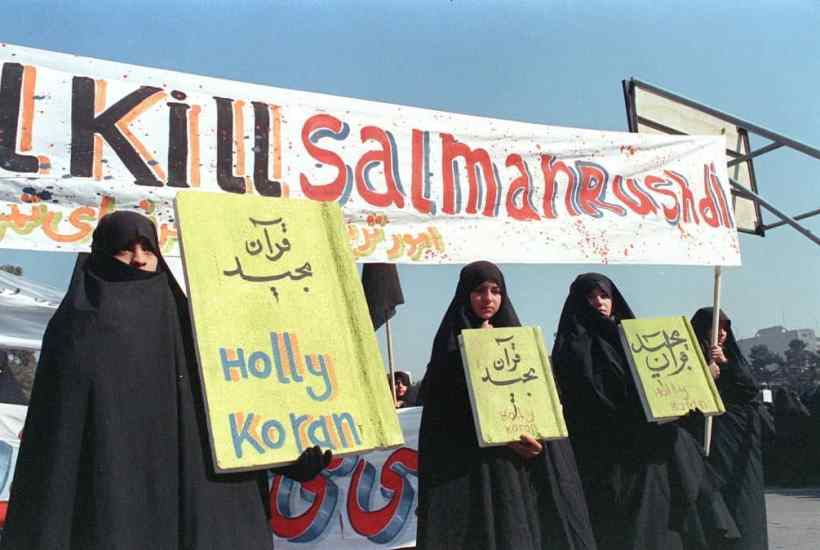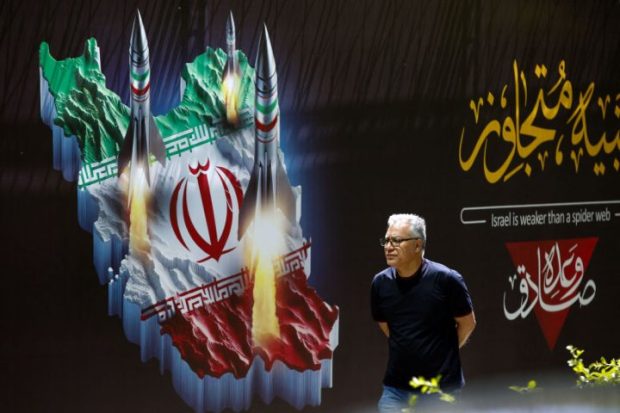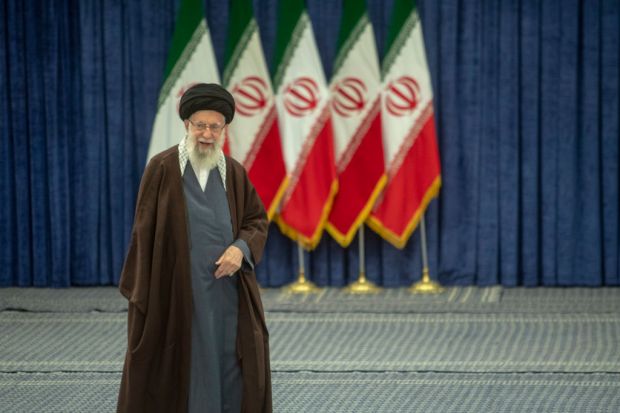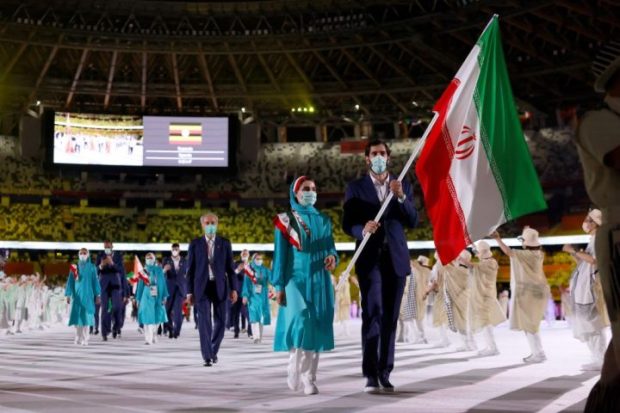So according to Iran it is Salman Rushdie’s own fault that he got stabbed. It had nothing to do with the vile death warrant issued by Iran’s own ayatollah in 1989. It’s unrelated to the fact that the fatwa was reaffirmed in 2005. It’s not because Iran’s Revolutionary Guards once said ‘the day will come when (Muslims) will punish the apostate Rushdie for his scandalous acts and insults against the Koran’. No, it’s all Salman’s fault for – you guessed it – ‘insulting the sacred matters of Islam’. He brought that terrible knife attack upon himself.
It is hard to think of a more despicable response to the alleged attempted murder of Rushdie than this. For more than three decades Iran has dangled a death sentence over Rushdie’s head. A death sentence which expressly says that ‘all brave Muslims of the world’ have a duty to kill Rushdie and his publishers ‘without delay’. Yet when someone allegedly tries to do just that, Iran throws its hands in the air and says: ‘Nothing to do with us.’
This cynical, juvenile attempt to swerve moral responsibility for the attack on Rushdie was made by Iran’s foreign ministry. Its spokesperson, Nasser Kanaani, says Iran ‘categorically’ denies any link to Friday’s attack.
‘No one has the right to accuse the Islamic Republic of Iran’, he claimed, like a bull in a china shop wondering what happened to all the plates.
The response of Iran’s media to the assault on Rushdie tells a different story. They are taking pride in Iran’s role in singling Rushdie out for religious murder. One outlet called the attack ‘divine retribution’. State broadcaster, Jaam-e Jam, grotesquely responded to the news that Rushdie might lose an eye by saying ‘an eye of the Satan has been blinded’.
Iran’s shirking of culpability is also undermined by some of the claims being made about the suspect, Hadi Matar. His exact motivation remains unclear, but Vice News is reporting that he had some kind of contact with Iran’s Islamic Revolutionary Guards before the attack, though there is no suggestion Iran was directly involved.
So, yes, we do have the right, Mr Kanaani, to accuse the Islamic Republic of Iran. To postulate that your extant fatwa played a role in what happened to Rushdie. To insist that it was a crime against civilisation for you to put a target sign on the head of a man whose only ‘crime’ was to write a novel you found offensive.
Iran’s arrogant dismissal of the idea that it might bear some responsibility for this violent assault is shocking. But doesn’t it also sound familiar? It feels like a global act of victim-blaming. Iran is essentially saying that free speech has consequences, and that Rushdie has just experienced some of those consequences. This sounds eerily, and scarily, like a lot of what we hear in the West these days.
‘(We) do not consider anyone other than Salman Rushdie and his supporters worthy of blame and even condemnation’, says Mr Kanaani. By crossing the ‘red lines’ of the world’s 1.5 billion Muslims, Rushdie ‘exposed himself to the anger and rage of the people’, he continued.
Really, he’s talking about ‘consequence culture’. This is the chilling idea that has taken hold in right-on circles in the US and the UK in recent years. It argues that you can say anything you want but there might be consequences. You could lose your job, lose your income, get thrown off social media, get hounded out of polite society. ‘Free speech has consequences!’, the cancel-culture set will say as they watch and cheer the punishment of someone for saying something ‘bad’.
I have always found the phrase ‘free speech has consequences’ deeply disturbing. The only consequence that the exercise of free speech should have is more speech. Disagreement, debate, ridicule, mockery: these are perfectly legitimate consequences of free speech. They’re good consequences, in fact, in that they ignite debate.
But getting sacked? Being No Platformed? Being harassed? Being subjected to constant abuse, as someone like JK Rowling often is? Only those of an authoritarian bent would view these as legitimate ‘consequences’ of free speech. In these contexts, ‘consequence’ really means punishment. ‘Free speech has consequences’ translates into: ‘You can say it if you want to, but we will destroy you for doing so’. ‘Consequence culture’ is a fancy term for censure and intolerance.
And now the Iranian regime is at it. If Rushdie hadn’t crossed certain ‘red lines’, he’d have been fine, it is saying. All he’s experiencing is the consequences of his own speech.
The ‘consequences’ promoted by Western radicals might be less dramatic and less violent than the ‘consequences’ promoted by Iranian theocrats and other Islamists. But they’re bound together by a creepy belief that it is legitimate to punish people for expressing themselves, whether by hurting their bank balances or hurting their bodies. Enough. Respond to speech with speech, not your life-ruining or life-ending metaphorical ‘consequences’.
Got something to add? Join the discussion and comment below.
Get 10 issues for just $10
Subscribe to The Spectator Australia today for the next 10 magazine issues, plus full online access, for just $10.





















Comments
Don't miss out
Join the conversation with other Spectator Australia readers. Subscribe to leave a comment.
SUBSCRIBEAlready a subscriber? Log in